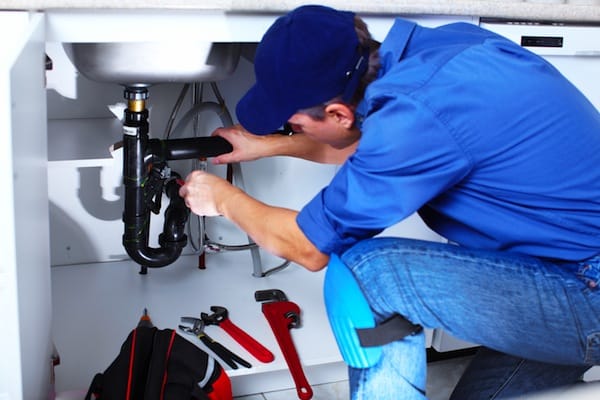 With electrical repairs, it’s immediately apparent if something didn’t go quite right—there are sparks, the lights go out, maybe a little zap. Plumbing repairs are different. Problems often don’t appear for weeks—when the little leak from the poorly sealed pipe becomes a giant, dripping wet spot on the ceiling. Then there’s the issue of disposal—what exactly were you planning to do with that heavy old toilet or rusty water heater?
With electrical repairs, it’s immediately apparent if something didn’t go quite right—there are sparks, the lights go out, maybe a little zap. Plumbing repairs are different. Problems often don’t appear for weeks—when the little leak from the poorly sealed pipe becomes a giant, dripping wet spot on the ceiling. Then there’s the issue of disposal—what exactly were you planning to do with that heavy old toilet or rusty water heater?
Q: Should I hire a plumber or do it myself?
A: Plumbing is both an art and a science. From familiarity with code requirements to experience with materials (i.e. knowing how much force you can put on PVC before it cracks), plumbing requires a lot of knowledge and experience. Regardless of how handy you are, always call a plumber in the following situations:
- Low water pressure throughout the house
- No hot water
- Sewer line stoppage/back-up
- Frozen/burst pipes
- A stubborn clog
- Anything involving an older, corroded system
- You tried to fix it once and failed
Call a plumber when the source of the problem is uncertain or when you aren’t sure if you have the skills and tools to fix it yourself. Matt Gwaltney, president of M&E Plumbing in Shorewood, IL, said, “About 25% of the repair calls that we make involve someone that attempted to make the repair themselves. Many times we have to go back and figure out what they did and make it right. Sometimes they don’t use the right products and can’t return them. The whole project just ends up costing them more.”
Q: How much does a plumber cost?
A: The first question to ask yourself: What is my time and sanity worth? The second question: Is this really how I want to spend my Saturday? Remember that your time is valuable. Time management experts advise setting an hourly rate for your non-workplace hours. Say the plumbing repair takes you six hours and your time is worth $60 an hour, that’s $360 (once you start thinking like this, you may find more areas where it makes sense to outsource).
An experienced plumber can complete most household repairs in an hour, you can’t. By the time you go to the hardware store, assemble your tools, do several Google searches and actually finish the repair, it’s going to take you considerably longer—this is assuming that everything goes smoothly.
Save money by consolidating jobs: before you make the appointment, do a quick check around the house to see if there is anything else (like a leaky faucet) that needs to be taken care of, and don’t hesitate to ask the plumber to check for additional issues around the house before he leaves.
Q: Where can I find a good plumber?
A: The best way to find a good plumber is to ask friends and real estate agents (a surprisingly valuable source). Another option is to subscribe to an online referral site. Once you find a plumber you’re satisfied with, keep the contact info handy for emergencies.
The plumber you hire should be licensed (which requires liability insurance) and also guarantee the work. Ask to see a copy of the license and be sure to get a receipt—this will cover you on both counts. Another caveat, most plumbing repairs require more than a handyman. Handymen tend to be good at many things, but plumbing requires mastery.
Finally, be sure your plumber is using parts and products from manufacturers with a reputation for quality. Ask ahead of time which brands he tends to use, then research the quality and warranty online. It doesn’t matter how good the plumber is if the parts fail in a year. The better brands have components that will provide many years of trouble-free performance.
Source: Gerber Plumbing Fixtures




Join the conversation: